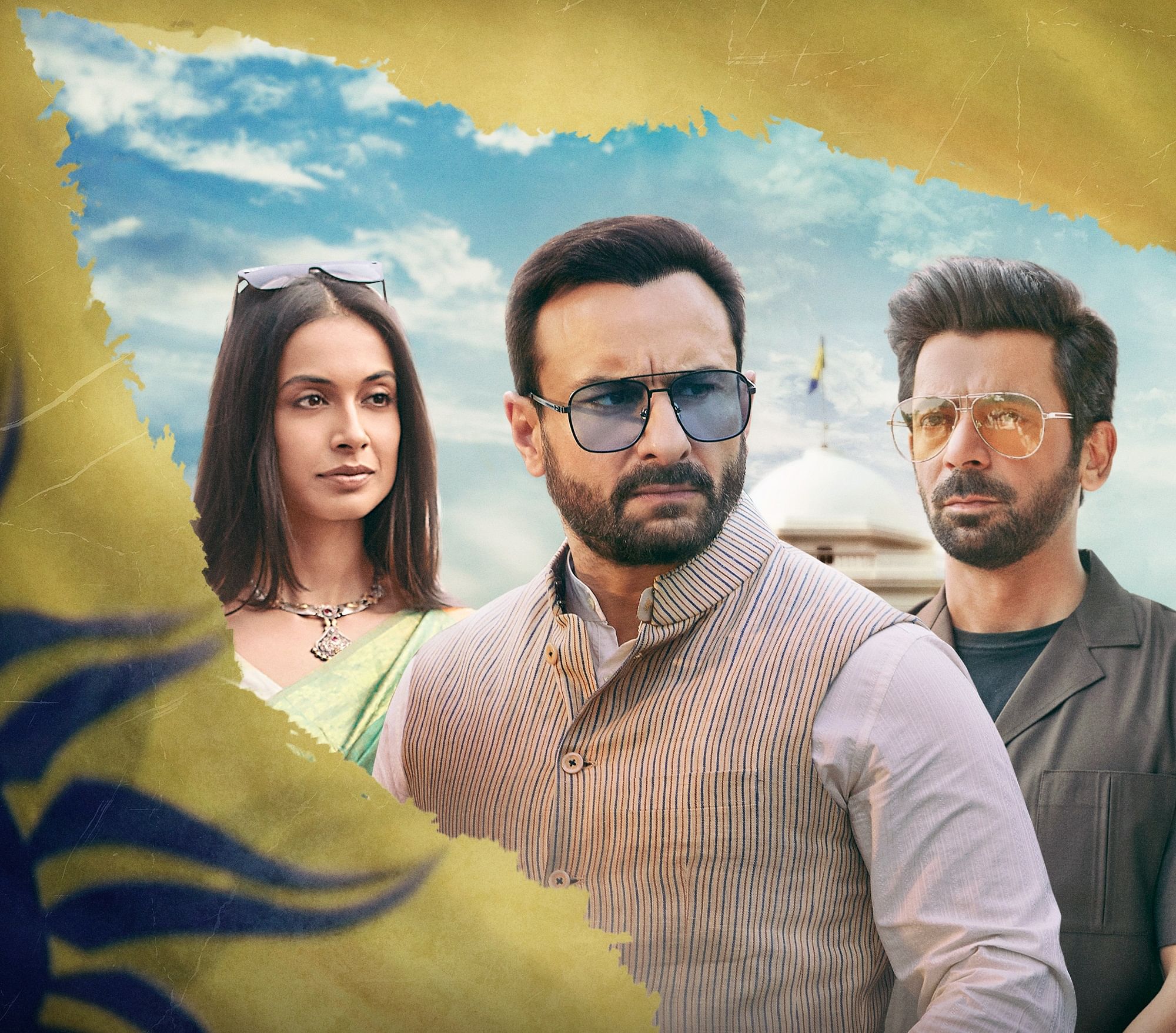
The cast and crew of web series Tandav have apologised following complaints that some scenes offended religious sentiments.
They are rewriting scenes and removing lines regarded by the complainants as offensive.
Balbir Azad, a resident of Greater Noida, was the first to complain. The series depicts the Uttar Pradesh police in a poor light and insults Hindu gods and goddesses, he told the police.
In Bengaluru, people associated closely with the film industry reacted to the controversy.
Why should creative people alter their work?
Pawan Kumar, writer and director, is best known for the Kannada films U-Turn and Lucia, both of which were box-office hits. He is also associated as a writer with Leila, a dark, dystopian Hindi web series that talks about the dangers of dominance. Creative people are being forced to alter their work and this goes against the spirit of art, he told Showtime in the context of the Tandav controversy. “It has simply become a power play where the law is misused to stop any debate and discussion. This is a sad state of affairs because art, at the end of the day, was supposed to allow you to question and see things from a different perspective,” says Pawan. He also observes that traditionally the education system has never taught us art appreciation and trained us to see and absorb it. “Youngsters are told films are a form of entertainment and never encouraged to go beyond it,” he says. Art also strikes up self conversation and reinstates faith in one’s belief, society, religion and politics, adds Pawan.
Politics has become a business
Upendra, actor and director, known for his iconoclastic films, sees no point in taking offence to a series like ‘Tandav’. He blames the controversy on politicians who want to divert the people’s attention away from their own failures. “Politicians must work for the people rather than for themselves. Changing political parties is not the solution. Changing politics and creating an awakening among the people is the key to change,” he says. Politics has become a business with unbridled flow of money. “This must change and people’s participation holds the answer,” he says, suggesting that controversies such as this one would not then arise.
'Superficial understanding of system’
N Vidyashankar, film critic and artistic director, Biffes, says Tandav touches on contemporary political situations but is not nuanced enough. But he sees no reason why Tandav should be banned in a democracy. “I don’t think any work of art should be banned unless it creates a law and order situation and necessitates such action,” says Vidyashankar. “Religious symbols always inspire people who follow a religion. Whether we are minority or majority groups, we are getting sensitive about these symbols,” he says. He feels a pathbreaking Kannada film like ‘Samskara’, for instance, and many writings of the last century, might not have survived the scrutiny of the present times. “Everybody is conspiring,” says Vidyashankar, adding that it is important to hold democratic values aloft at all times.
Exposes fascist nature of our state
N Manu Chakravarthy, National Award-winning film critic, says the unfortunate part of ‘Tandav’ is that it imitates the cheap popular tricks adopted by box office cinema and thereby dissolves its down ethical concerns which are indeed there in the series. “It is most tragic when creative attempts are subject to such tyrannical onslaught, compelling creative people to rewrite or modify their original attempt. One recalls how Bal Thackeray’s approval had to be taken before ‘Bombay’ had to be allowed on the screen,” he says.
Such actions against artists exposes the fascist nature of our state, with religious questions becoming majoritarian political points. About snipping off the controversial scenes, he says, “Adding or removing scenes after it has been released is the most uncreative act brought about by political forces.”
Art and society are inseparable
Venkatram Harish Belvadi, filmmaker and academic, says social issues and art are inseparable. “Indian society is undoubtedly more tolerant than the ‘Tandav’ controversy seems to suggest,” he says. “Tandav and its jarring portrayal of Shiva and certain elements of caste have struck a raw nerve with some people. In apologising as they have, the Tandav team has amicably drawn the issue to a close,” he says.
In the dock
Following complaints from Hindutva groups, police have filed FIRs against 'Tandav' director Ali Abbas Zafar, writer Gaurav Solanki and Amazon Prime head Aparna Purohit.
What's in it?
A scene in Tandav, in which a student leader talks about 'azadi' (freedom) from 'Manuvad, jaativad and atyachar,' is being cited as offensive. A student leader called Bholenath takes on 'Ram bhakts' whose social media reach is threatening his popularity. This is seen as a metaphorical conflict between Shiva, known for his free, non-conformist ways, and Rama, who treads a more traditional path. Hindutva groups see the scenes as a veiled attack on their brand of politics. Tandav is a political drama, and tells the story of how politicians go to any extent to cling to power. Student protests in the series actually bring to mind the Indira Gandhi and Rajiv Gandhi era, some critics say.